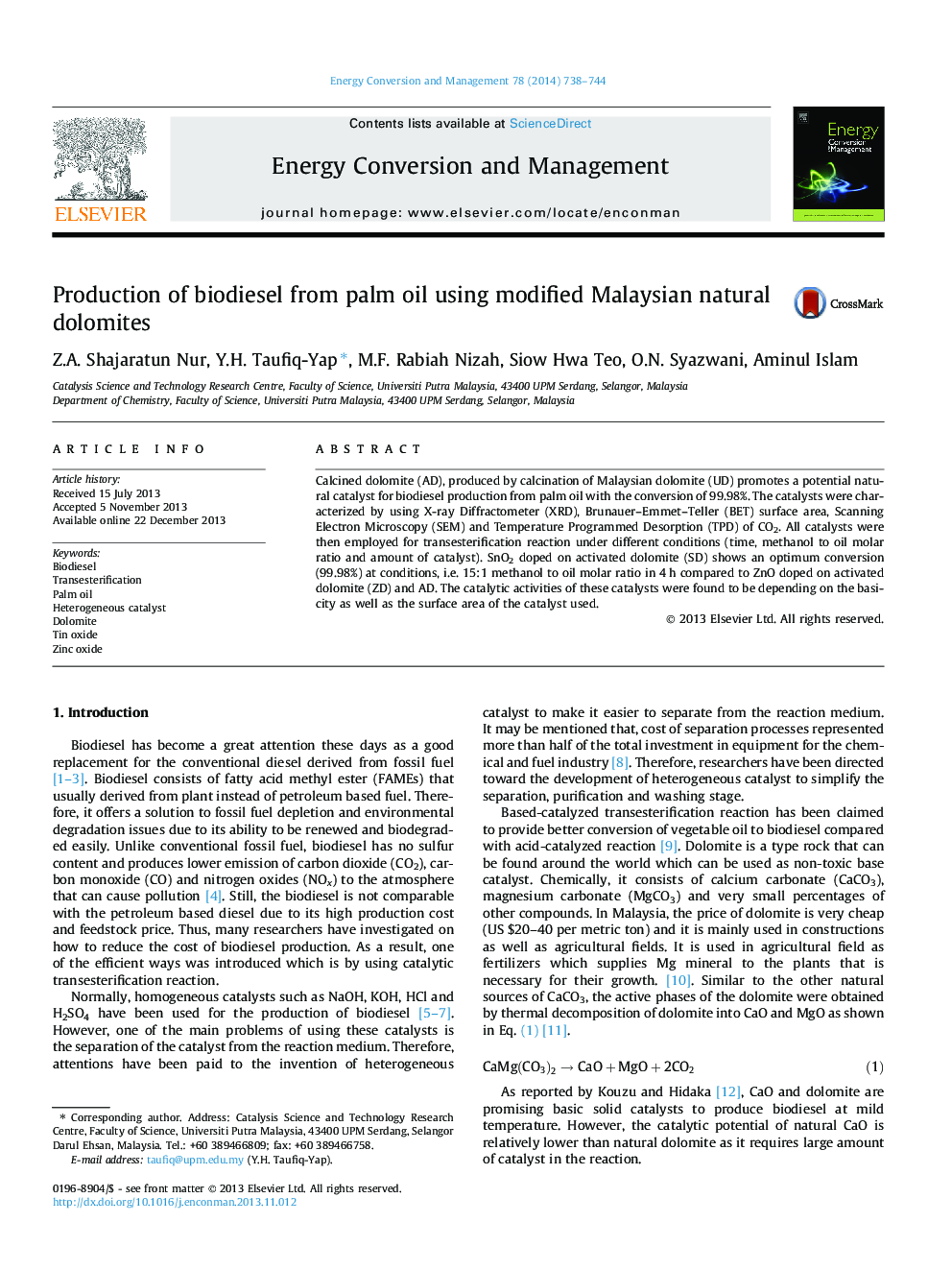| Article ID | Journal | Published Year | Pages | File Type |
|---|---|---|---|---|
| 764129 | Energy Conversion and Management | 2014 | 7 Pages |
•Transesterification was carried out using modified Malaysian natural dolomite catalyst.•Characterizations of the catalyst were performed by using XRD, TPD-CO2, BET and SEM.•Maximum biodiesel conversion of 100% was achieved from SnO2/dolomite catalyst.•The yield was affected by the surface are as well as the basicity of catalyst.•The transesterification reaction gave significant conversion with relatively lower amount of catalyst.
Calcined dolomite (AD), produced by calcination of Malaysian dolomite (UD) promotes a potential natural catalyst for biodiesel production from palm oil with the conversion of 99.98%. The catalysts were characterized by using X-ray Diffractometer (XRD), Brunauer–Emmet–Teller (BET) surface area, Scanning Electron Microscopy (SEM) and Temperature Programmed Desorption (TPD) of CO2. All catalysts were then employed for transesterification reaction under different conditions (time, methanol to oil molar ratio and amount of catalyst). SnO2 doped on activated dolomite (SD) shows an optimum conversion (99.98%) at conditions, i.e. 15:1 methanol to oil molar ratio in 4 h compared to ZnO doped on activated dolomite (ZD) and AD. The catalytic activities of these catalysts were found to be depending on the basicity as well as the surface area of the catalyst used.
